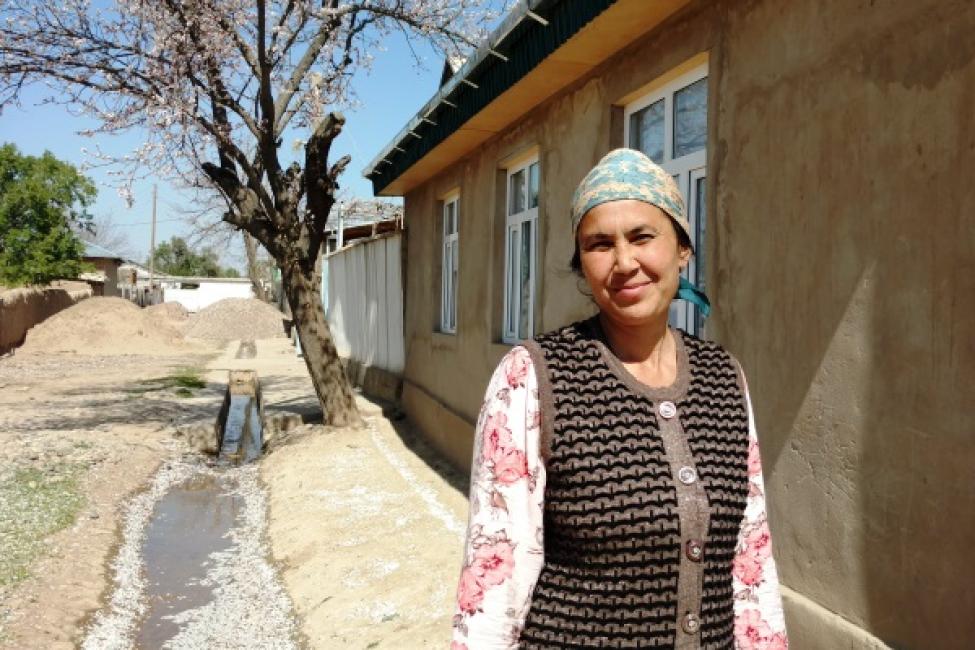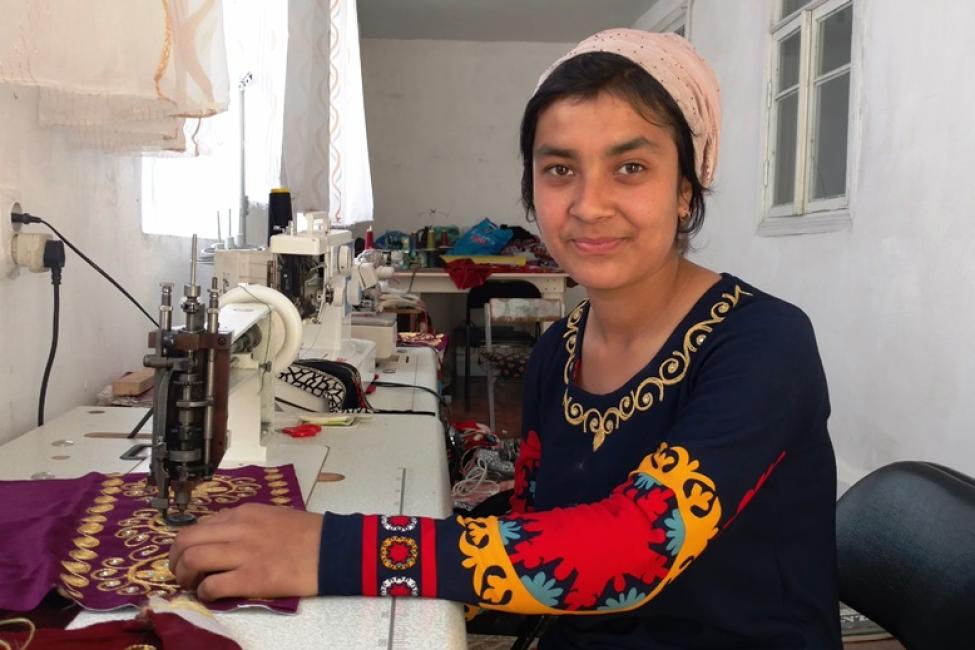-
Who We Are
WHO WE AREThe International Organization for Migration (IOM) is part of the United Nations System as the leading inter-governmental organization promoting since 1951 humane and orderly migration for the benefit of all, with 175 member states and a presence in over 100 countries. IOM has had a presence in Tajikistan since 1993.
About
About
IOM Global
IOM Global
-
Our Work
Our WorkAs the leading inter-governmental organization promoting since 1951 humane and orderly migration, IOM plays a key role to support the achievement of the 2030 Agenda through different areas of intervention that connect both humanitarian assistance and sustainable development. Across Tajikistan, IOM provides a comprehensive response to the humanitarian needs of migrants, internally displaced persons, returnees and host communities.
Cross-cutting (Global)
Cross-cutting (Global)
- Data and Resources
- Take Action
- 2030 Agenda
Last summer she was an unemployed mother of two schoolgirls and a husband with special needs. Today she expands her tailoring business, employs girls at neighborhood, and passes her tailoring skills to daughters. Sadorat Alimurodova, 42, does not stop thanking IOM for a revolution she had in her life, when received tailoring equipment in September 2018 and started doing what she knows best and loves best – sewing beautiful ladies’ dresses.
Sadorat first went to Russia in 2012, when her husband returned from there with a broken leg and could not work anymore and feed the family. She found a job of a cleaner at a fitness-club in Moscow, where used to receive $600 a month. Since then, Sadorat divided her time between seasonal labour migration to Russia and home, using her savings for weddings of her two eldest daughters. This life could keep continued if she was not caught by police for violation of migration rules in 2017 and banned to re-enter Russia. Russian migration legislation is frequently criticized by experts for harsh rules, which results in hundreds of thousands migrant workers getting re-entry ban.
Sadorat recalls: “I returned home, but could not stay here jobless. I have two other younger daughters and needed to think of them. I was so desperate that was seeking for any opportunity to go back to Russia, even illegal one by changing my name and surname. But I heard of a local organization, which supports small start-ups. I went to this organization”.
Ms. Mehrinisso Babalova, director of a local civil society organization “Chashma”, IOM partner in southern districts of Tajikistan, explains why Sadorat was chosen: “We found her very smart and we believed in her that she will achieve a success and can expand her business and be sustainable. She said, she knows sewing very well and we gave her several sewing machines and equipment bought by IOM within a USAID-funded project”.
Sadorat well knows the tailoring: “I used to learn tailoring at school and wanted to study it at a college, but the civil war broke my plans. I got married and would only sometimes sew for family and neighbors using an old sewing machine, a wedding gift of my mom. I killed my dream of a professional sewer in my heart”.
This last sentence of her explains why Sadorat calls the moment she received several sewing equipment a turning point in her life. Dream of her youth revived. Now she has another important point to add. Her children! She says: “I did not see much of my two eldest daughters growing to young ladies, but just worked hard to make enough money for their wedding. I wanted to be by my youngest daughters and be that mother, who not only earns money for them, but also sits next to them, tells them about the life, listens to their hearts and stories, and prepares them for the life”.
In addition to participation at upbringing of her daughters, Sadorat sends them to school paying for clothes and books, teaches them how to sew, and sends them to extra embroidery classes. She has already built an additional room attached to her house to place her machines and bought some more sewing machines. She employs girls from her neighborhood, plans additional expansion of business, and complains of power sometimes going away and postponing her plans. Despite of that, Sadorat is full of optimism:
“I am happy. I can afford now to send my husband for treatment to Dushanbe (capital city), and to take care of my daughters and educate them without having to leave my own house. Now I make almost the same amount I would make in Russia after paying for expensive rent and food and monthly work authorization. I don’t want to return to Russia. I don’t need it anymore, if this job will go as well as it is now. And I will do everything I can to make this job to go as well as it goes now!”




